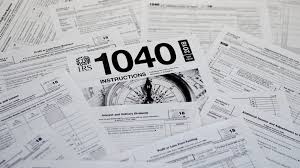IRS’ Response to COVID-19: What Taxpayers Need to Know

Dawn Delia, a tax practitioner, joins us today for a helpful posting on IRS tax requirements during the COVID-19 crisis. Dawn can be reached at [email protected]. Her blog is located at https://deliataxattorneys.com/tax-blog/.
Postponed Tax Deadlines for 2020 in Response to the Coronavirus
One of the most recent developments was the announcement from the U.S. Department of the Treasury that the deadline for filing tax returns and submitting tax payments for the 2019 tax year has moved from April 15, 2020 to July 15, 2020. This provides those affected with an additional three months to address their tax-related issues with greater flexibility. On March 13, 2020, President Trump issued an Emergency Declaration under the Robert T. Stafford Disaster Relief and Emergency Assistance Act to announce this change. All Americans affected by this change do not need to file for extensions to the usual April 15 deadline. This change applies to both tax return filings as well as tax payment due submissions.
Taxpayers who wish to take advantage of this change should keep a few things in mind. First, the change only applies to taxes and returns due on April 15, 2020. Those due on March 16 and May 15 appear to maintain their original deadlines. Additionally, there was a suggested cap of $1,000,000 for individuals and $10,000,000 for corporations that could be deferred, but these caps have been removed. There is no limit to the deferrable amount with this change, and unpaid balances will not accrue penalties or interest until the new deadline of July 15, 2020.
Know Your Specific Requirements and Eligibility for Extension
It’s also vital to know that this relief measure only applies to tax return filings and tax payments due on April 15, 2020. Self-employment tax from the 2019 tax year as well as self-employment tax for the first quarter of 2020 still maintain their original deadline of April 15, 2020. The relief does not apply to any other type of taxes, such as back taxes owed. There is no automatic extension for these payments. Thus, anyone who owes back taxes or other taxes outside the scope of this new Emergency Declaration should expect to pay their taxes as usual, unless you are in a payment plan (see below tax relief).

American taxpayers should also understand that many state and local tax authorities have implemented their own emergency relief measures. If you are unsure about whether your tax payments or return filing qualify for any emergency-related extensions, it’s a good idea to check with your local tax authority as well as your state’s Department of Revenue to avoid any potential penalties.
IRS People First Initiative: IRS’ Response to COVID-19
In addition to extending tax deadlines and payments, there are additional actions taken with regard to the IRS’ Response to COVID-19. The IRS has also implemented the key actions below to assist taxpayers needing immediate tax relief during this difficult time. Below are some of the most important that pertain to taxpayers:
Existing installment agreements: if you have a current IRS payment plan with the IRS, you may suspend payments. The IRS also will not default any installment agreements at this time.
Offers in Compromise (OIC): If there is a pending OIC, information or delinquent tax returns requested by the OIC officer will be due on July 15th. For an accepted OIC, taxpayers will also have the option to suspend settlement payments to July 15th.

Field and automated IRS collection activities: Most collection activities from IRS automated collections and IRS revenue officers will be suspended until July 15th. These collection efforts include tax liens, wage garnishments, levies and seizures. *However, revenue officers can still collect on high income non-filers and other cases as warranted.
Passport issues: The IRS will suspend “new” certifications to the State Department, but will not revoke or suspend previously suspended passports.
IRS audits: The IRS will generally not start new audits, but may if deemed necessary to protect governmental interest.
Additionally, under the IRS’ Response to COVID-19, it has taken measures to protect its own employees, so there may be some longer hold times during this time.
What to Do About Tax Payments Ineligible for Relief
After reviewing the new Emergency Declaration and the implemented changes to the tax deadline, you might wonder what you should do about back taxes and other tax payments not covered by these changes. In short, it’s business as usual, and you should prepare to pay those taxes according to their original deadlines. If you want to resolve your tax issues, this is a good time to do it.
The ongoing Coronavirus pandemic has dramatically impacted American businesses, and many people have lost their main sources of income until this disaster reaches a conclusion. If you are unsure about your ability to pay your back taxes, you do have some options available to offset the financial strain back taxes can cause during a very difficult time.
1.“Currently Not Collectible” Status
This option will prevent the IRS from continuing to pursue collection efforts against your back taxes. Once the IRS investigates your financial situation and determines you are unable to pay your back taxes, they place your tax account in a “Currently Not Collectible” status. While this can provide a much-needed reprieve from the IRS’ collection efforts, it does not prevent additional penalties and interest from accruing on top of your tax debt. Interest and penalties will continue to accumulate, and if your financial situation improves, you will be removed from Currently Not Collectible status and the IRS will resume their collection efforts.
2. Offer in Compromise

This is one of the most underutilized tax relief options available, and it could potentially wipe out most of your back tax debt if you qualify. An Offer in Compromise is essentially a settlement negotiation with the IRS, after which the IRS will usually accept a tax payment amount that is much less than the actual amount owed. Taxpayers who choose to pursue this option must choose between a lump sum offer or a periodic payment plan offer.
With a lump sum agreement, the taxpayer must submit a down payment with an application fee and then pay the approved sum within five months of approval. Periodic payment plans require a 20% down payment plus application fees as well at the time of filing, but the taxpayer can make installment payments over six to 24 months.
3. New or Re-Negotiation of your IRS Payment Plan
If you do not qualify for an Offer in Compromise, and are up to date with the current year’s tax obligations, then an IRS payment plan could be your best available option for relief. It’s important to remember that this type of solution does not prevent penalties and interest from accruing, and interest rates could reach as much as 10%.
4. Innocent Spouse Tax Relief
The IRS understands that a spouse is not always responsible for their spouse’s tax debts, and the Innocent Spouse Tax Relief option exists for these situations. This solution is complex. You must meet specific criteria in order to qualify. But if you can prove that you are not responsible for or were unaware of your spouse’s tax debt, you can submit your case to the IRS and seek Innocent Spouse Tax Relief. The timing of your marriage and your divorce, if applicable, will play major roles in the IRS’ determination of your eligibility.
These are just a few of the potential solutions available to you if you owe back taxes for the 2019 tax year and do not qualify for an extension under the new Emergency Declaration. It is very important at this time to keep abreast of the IRS’ Response to COVID-19. Additionally, the tax laws in the United States can be very confusing. California and New York have some of the most complicated state-level tax codes in the country.
This is a very uncertain and difficult time for many Americans, and it’s vital to seek assistance from an experienced professional if you need help determining your best available solutions to your tax-related problems during this pandemic. The tax attorneys at Delia Law located in San Diego, Los Angeles and New York are here to help. Feel free to reach out to us if you have questions about your back taxes and your eligibility for relief under the new Emergency Declaration.

Dawn Delia is the founding partner and managing tax attorney at Delia Law P.C. Ms. Delia can tackle any tax issue big or small, complex or simple. IRS collections, appeals, offers in compromise, payment plans — Ms. Delia enjoys the challenge of resolving your tax problems. Delia Law was founded so Ms. Delia could focus on helping individuals and small and medium-sized businesses facing tax liens, wage garnishments, unfiled tax returns, bank levies, payroll tax debt, IRS audits and more.















